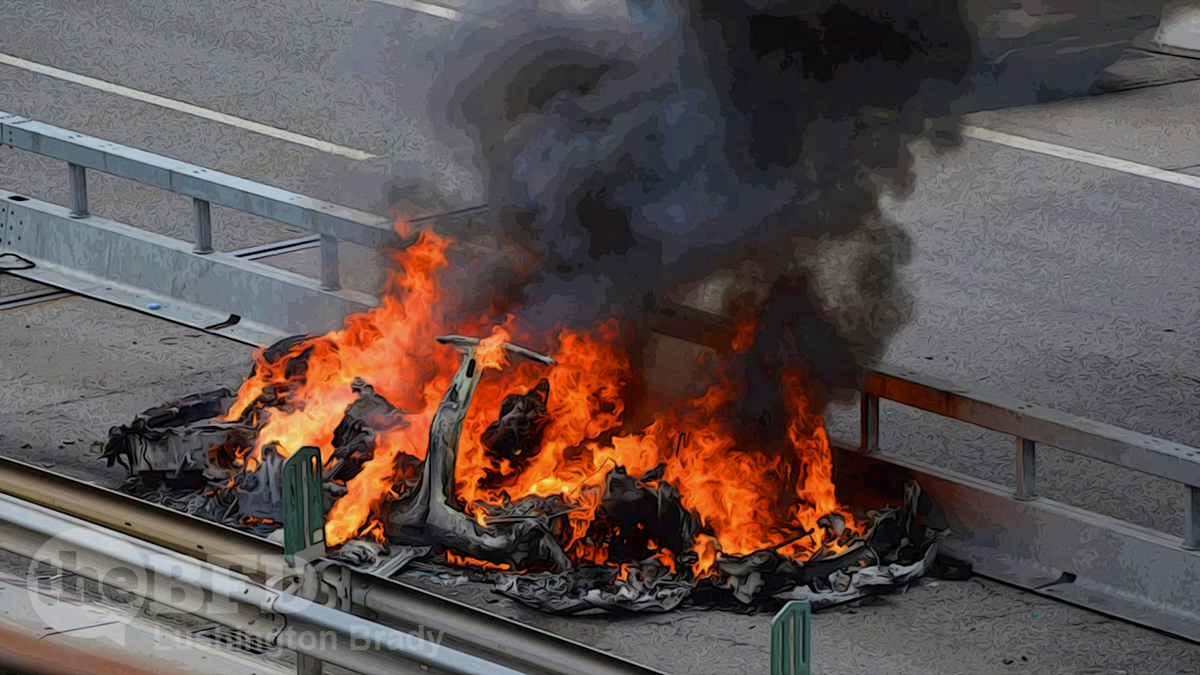Everything that’s a bit shite about EVs is a long and ever-growing list. As we saw last week, they even make tyres worse: the extra weight of the Damned Things wears tyres faster and creates more pollution.
In fact, for smugmobiles whose sole boast is supposedly cutting pollution, EVs sure have a whole lotta pollutin’ goin’ on. There’s the toxic nightmare of mining, refining and manufacturing their batteries.
And it just gets worse at the other end of the batteries’ lives.
As Australia passes the milestone of 100,000 electric vehicles on our roads, an environmental downside to reducing carbon emissions is looming sooner than many would expect: huge numbers of batteries that could end up in landfill.
Research from the University of Technology Sydney (UTS) suggests 30,000 tonnes of EV batteries will reach their end-of-life in Australia by as soon as 2030. This is forecast to blow out to 360,000 tonnes by 2040, and 1.6 million tonnes by 2050.
Thanks, middle-class smugsters!
Because, you better believe that a couple of millions of tonnes of scrap EV batteries adds up to lots of toxic waste.
Experts are warning of a “huge waste stream” that poses a triple threat: fire risks in landfill, environmental impacts and health hazards caused if toxic chemicals leech [sic] into land and waterways.
“We need to take action now,” said Libby Chaplin, CEO of the Battery Stewardship Council (BSC), the government-backed body set up to plan for battery waste in Australia.
Not rushing headlong into bullying, bribing and finger-wagging people to buy more of them apparently hasn’t occurred to them. These are people rushing around, lighting fires, then standing back and wringing their hands that “we have to put all these fires out!”
And by fires, I mean, literal fires.
“Right now, with the smaller [lithium] batteries in the general waste and recycling stream, they’re seeing fires in waste tracks on a pretty regular basis,” Ms Chaplin said.
The “smaller” batteries she’s talking about are the sort of batteries you’d find in your phone. Now, imagine what’s going to happen once humongous EV batteries start to join them.
Most EV batteries weigh around half a tonne. As well as plastic, aluminium, wires and casings, the battery cells inside them include many precious and finite metals, such as lithium and copper.
“Electric vehicles are just going to take that to another level.
“The impact on the community, in terms of financial resources, to put out fires is one thing, but the impact on the local community from a health perspective will also be significant.”
In the sense that “unstoppable, raging, toxic infernos” are “significant”.
In fact, EV batteries are such a fire risk that even professionals who dispose of them have to transport them in the equivalent of a bunker.
EcoBatt in Melbourne’s outer north is one of these recyclers.
“These are very big, very powerful batteries,” EcoBatt’s Hamish Lee said.
To transport EV batteries into the factory, EcoBatt has designed what Mr Lee dubs “an explosion box”. These transportation devices include cases lined in fire-retardant vermiculite and fire blankets.
“If there is any explosion or fire, it’s going to maintain or control that,” he said.
It gets even worse when other scientists – and these are all pro-“renewable”, remember – suggest that the problem could be even worse than projected.
Griffith University Professor Rodney Stewart, who researches how the renewable energy industry can deal with its own waste, backed the UTS modelling as “reasonable” but was worried it could be too conservative.
That’s because he believes many EV batteries might not live up to performance expectations for drivers and will be dumped earlier than 16 years into their lives […]
For years, the World Health Organization has been warning about the health risks of e-waste, including batteries, in areas where it is dumped. Toxic chemicals, if released into the environment in large volumes, are thought to pose health risks that could lead to respiratory issues, infertility, congenital disorders and cancer.
Yet, the UN keeps promoting them. It’s almost like they want people to die in order to “save the planet”.
In a statement, the Department of Climate Change, Energy, the Environment and Water said the government was working with industry to reduce waste from all products, including EVs and their batteries.
ABC Australia
Oh, well, if the government’s “working on it”, who are we to worry? I mean, it’s not like the government has ever made anything worse before.

